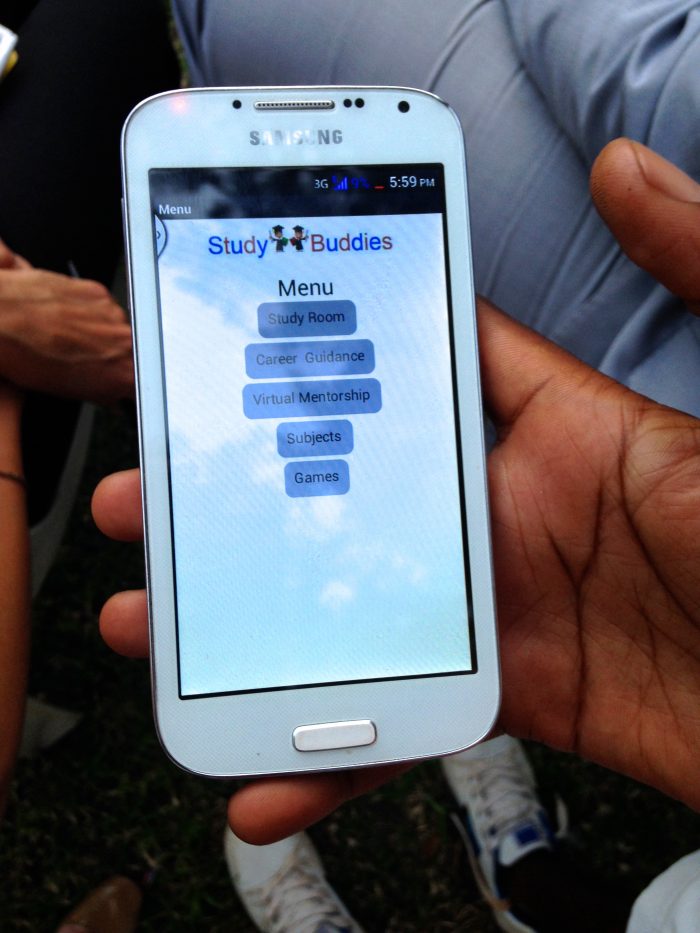RTAC Webinar Offers Timely Insights and Lessons Learned in Digital Education
POSTED May 21, 2020
|Education
Smita Gaith, Senior Communications and Engagement Lead, RTAC

In April 2020, USAID and Arizona State University (ASU), under the auspices of the Research Technical Assistance Center, hosted a webinar about recent developments in the use of digital strategies in education. It included presentations by Dr. Mary Jane Parmentier and Dr. Faheem Hussain, both of ASU. While the webinar was planned months in advance, the topic has become especially pertinent because of the education challenges presented by the COVID-19 pandemic. In response to the highly infectious disease, more than 160 countries temporarily closed schools, affecting 1.6 billion children and youth. This widespread impact on student learning makes it particularly important to share best practices for digital strategies in education.[1]
What Are Digital Technologies?
Digital technologies are complex and compound systems. They can range from software (such as mobile apps or social media applications) to hardware (such as phones or tablets) to media networks (which can be tangible or wireless). These technologies can play an important role in connecting students to virtual classrooms and other platforms. Dr. Hussain and Dr. Parmentier emphasized that digital technologies and systems are not one-size-fits-all: Educators and development experts should consider the most relevant systems and platforms for different countries and regions; they should be customized and localized to each situation. Their messages resonated with one participant from Morocco who later wrote that the facilitators “did an amazing job sharing the learning, the available tools and in highlighting the challenges that might be faced in implementing the digital strategies in different contexts/countries.”
Contributing to the Journey to Self-Reliance
Education and information and communication technologies (ICT) are both important development priorities in the journey to self-reliance. Education is critical to human development and other development indicators, while the use of ICT can drive national capacity and contribute to economic well-being. Dr. Parmentier emphasized the importance of considering social, economic, political, and cultural contexts when considering development initiatives. She also emphasized the nonlinear nature of development, which can be impacted by human development, economic growth, and other factors.
Insights and Innovations Can Be Applied in the Age of COVID-19
The use of digital technologies can come with challenges—and opportunities. Issues around infrastructure, privacy, and security, for example, can present difficulties or risks. At the same time, digital technologies can improve the sharing of knowledge and experiences. They can also empower learners in times of crises, such as the current pandemic, as well as in cases of political disruption or other events.
Webinar attendees found the session on delivering education in times of crisis especially pertinent. For example, one participant shared, “I really appreciate the knowledge and insight that I have got from the session. As a teacher working in a less resourced community I have greatly benefitted from the sessions.” Another participant from Pakistan described this webinar as a good starting point for further research on the use of technology specifically during COVID-19.
Dr. Hussain shared his personal experiences with digital education in the age of COVID-19. Whether he is leading instruction for students or trying to make sure his own seven-year-old son is learning virtually, Dr. Hussain noted that content and platforms must be engaging to effectively deliver education and facilitate learning.
What else can educators and development implementers do to support students’ learning in a digital environment? Dr. Hussain recommended two major considerations:
- Use hybrid platforms: When delivering virtual education, use multiple platforms and combine the use of online technologies with time offline to learn. Offline methods can include analog solutions like radio, newspaper, or TV. Educators can also take advantage of social media platforms like WhatsApp and Facebook groups to encourage dialogue.
- Update approaches to teaching: Educators should make learning an engaging experience by creating opportunities to interact and encourage dialogue. Educators can use this virtual engagement opportunity as a way to focus more on learning goals and outcomes and emphasize learner-centered approaches that focus on the knowledge, experiences, and ideas of students.
While much of the world is still adapting to digital platforms in education, Dr. Parmentier and Dr. Hussain offered some timely insights drawn from current practices and their own experiences.
Learn more about the digital education discussion, view the recording, or access the slides.
[1] World Bank. 2020. Guidance Note on Remote Learning and COVID-19 (English). Washington, D.C.: World Bank Group, http://documents.worldbank.org/curated/en/531681585957264427/Guidance-Note-on-Remote-Learning-and-COVID-19.
